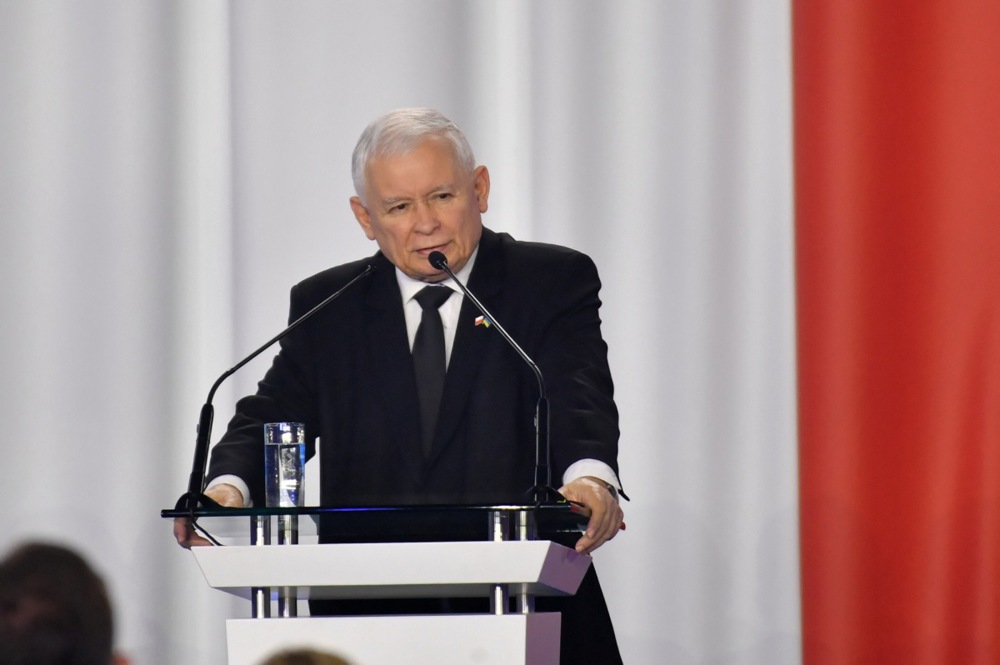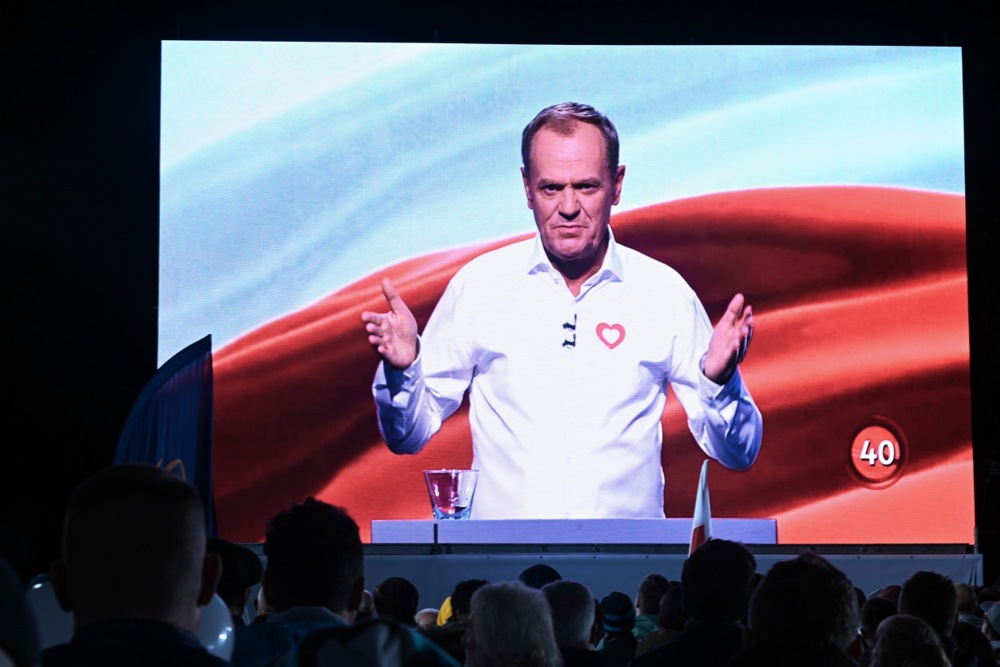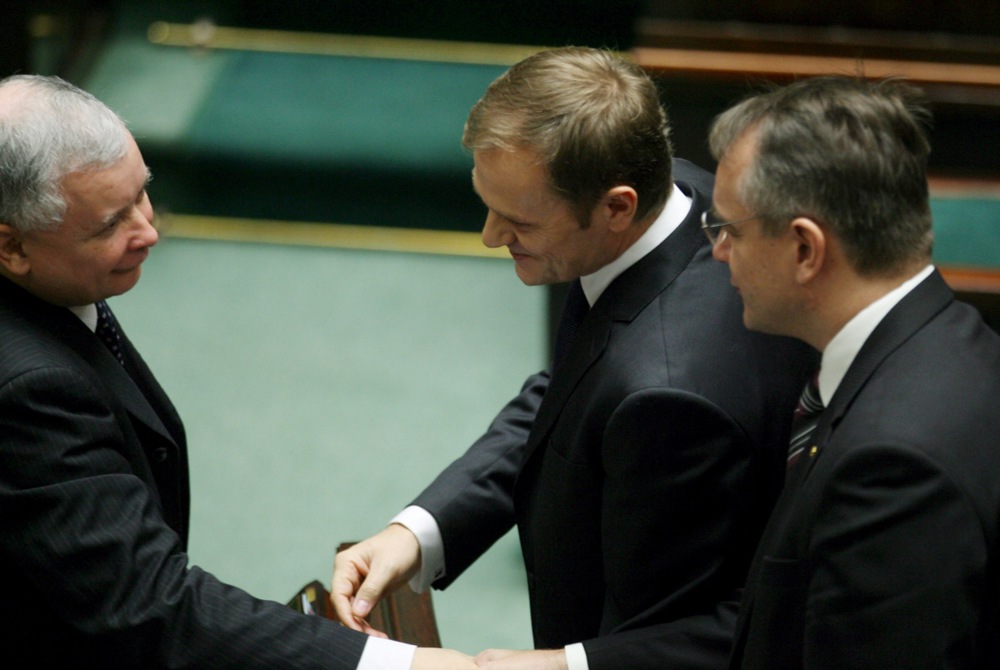It’s all over in Poland bar the voting with the poll on 15 October set to determine whether the ruling PiS gets a third consecutive term of majority rule or whether Poland will face the prospect of coalition forming – or even gridlock and another election within months.
Poles on Sunday will elect 460 members of the Lower Chamber (Sejm) by proportional representation in 41 multi-member constituencies. Some 100 Senators will also be elected via a first-past-the-post method in single member seats.
The Sejm vote is most important as that is the chamber of parliament that elects the government and has the final say on all legislation, including the country’s budget.
The Conservative PiS has governed Poland for the past eight years and has succeeded in presiding over a rise in living standards and lower levels of poverty.
The government has found it tough going in Brussels with European Union institutions challenging Poland’s judicial reforms, and blocking the country’s post-pandemic funds. Both have repeatedly clashed over climate policies and attempts at accelerated EU integration, which PiS believes would result in a loss of sovereignty.
The PiS, led by its founder Jarosław Kaczyński, is dominant in the United Right coalition that also includes smaller Right-wing groups. It is attempting to become the first government in Poland’s democratic history to win a third term in office with a parliamentary majority.
PiS is aligned with the Catholic Church and as such is culturally conservative. Regarding the economy and social policy, it has pursued a social democratic course with increased welfare spending and boosting the role of the state in the economy.
The main opposition bloc, led by former prime minister and President of the European Council Donald Tusk, is the Civic Coalition (KO) within which the party Tusk founded (PO) is totally dominant.
Tusk and his bloc has been moving significantly to the Left. At this election its proposals include abortion on demand until the 12th week of pregnancy and a 20 per cent across-the-board pay increase for the public sector. In an effort to appeal to its Right flank it has also promised the abolition of capital gains tax and doubling the threshold for paying income tax.
The Left party has been under pressure to protect its vote as a result of Tusk’s bloc’s move Leftwards. It has done so by promising a major public-housing construction programme and paring back the influence of the Catholic Church, including the elimination of religious teaching in schools.
It has made it clear that it is ready and willing to form a coalition with KO and, if need be, the Third Way coalition.
The Third Way coalition is composed of the centrist Polish People’s Party and the more Liberal Poland 2050 party founded by former TV celebrity and 2020 presidential candidate Szymon Hołownia. It has declared it wants to govern with the KO and the Left.
The only opposition party that has kept its powder dry on who it might want to form a coalition with is the Right-wing Confederation. That party is made up of smaller libertarian and nationalist parties.
It is arguing for “generational change” in government as its leaders Sławomir Mentzen (37) and Krzysztof Bosak (41) are considerably young than either Kaczyński (74) or Tusk (71). It has also been the only party arguing for lower welfare spending and reduced support for Ukraine.
Confederation has attempted to keep its distance from both PiS and KO, arguing that it does not want a coalition with either. Ideologically, it seems to be closer to PiS but has ruled out working with the Left party only, keeping the door slightly ajar on co-operation with both KO and Third Way.
Tomasz Wróblewski argued in a piece for Brussels Signal that the stances of the parties on the future of Poland’s economy have played only a minor part in their election campaigns that end on October 13 at midnight. At that point, a campaign curfew comes into force until the voting is over on October 15.
This is because all the parties, with the exception of the Confederation party, have been concentrating on making promises to boost state and welfare spending rather than reducing it.
Commentator Łukasz Warzecha, who writes for Conservative weekly Do Rzeczy, has called this the “most expensive election campaign in history”. That is not so much because of the money spent in the campaign but, rather, the costs of all the promises being made.
For the KO alone, analysts for the Liberal-leaning portal Onet.pl estimated those proposals would require an increase of around €25 billion in state spending.
It is attitudes towards the EU that, along with cultural issues, provide the real ideological cleavages among players in this election.
All parties support Polish membership of the EU and KO, Third Way and the Left all want further integration, agree with the bloc’s climate policies and are willing to accept the EU Migration Pact. PiS and Confederation oppose any further integration and the pact.
This disparity explains why most inside both the EC and European Parliament are rooting for the three opposition parties rather than PiS and Confederation.
The opposition’s narrative in this campaign has been of Polish democracy and the country’s position in the EU being in danger. The ruling party’s thrust has been that Tusk’s return to power would mean the end of Polish sovereignty.
PiS has pursued an assertive campaign defending its record and attacking the opposition by holding a referendum on election day in which voters will be asked if they want to reject the EU Migration Pact.
Other questions regard maintaining the wall on the border with Belarus and state ownership of key parts of the economy. In addition, the issue of keeping the retirement age at 60 for women and 65 for men will be tabled.
If more than 50 per cent of voters participate in the referendum it is likely that the results will lock-in future governments over the issues raised. This is why the opposition parties have been advising their supporters to boycott it.
In its election broadcasts, PiS has repeatedly attacked Tusk as being a proxy for German rule and for being soft on Russia during his spell as prime minister from 2007 to 2014.
It has also accused Tusk and the KO of supporting EU institutions in their disputes with Poland.
Tusk and his allies have responded by accusing the government of hypocrisy in its opposition to the Migration Pact while presiding over the arrival of hundreds of thousands of foreign workers from Asia.
They pounced on reports of irregularities in the issuing of Schengen visas by Polish consulates abroad and claimed that meant Poland was letting in illegal migrants through the backdoor.
PiS managed to put the opposition on the defensive over a controversial film Green Border, which portrayed Polish border guards as brutal and inhumane in their handling of the crisis on the Polish-Belarusian border in 2021. That was caused by Belarusian authorities facilitating attempts at illegal crossings by migrants.
This reminded voters that KO and Left party politicians had opposed the building of the border wall on the frontier with Belarus and had sympathised with organisations that had been helping migrants and challenging the actions of border guards.
Leading Polish psephologist Marcin Palade, analysing the final batch of polls before the campaign curfew, said support for the PiS was running in the 35-39 per cent range, the KO around 28-31 per cent, Third Way between 9 and 12 per cent, the Left at about 9 to 11 per cent and Confederation at 8-10 per cent.
If the exit poll on October 15 night indicates a very close result then it may take until October 17, when all the votes have been counted and tabulated, for Poles to know what kind of government they may end up with.





